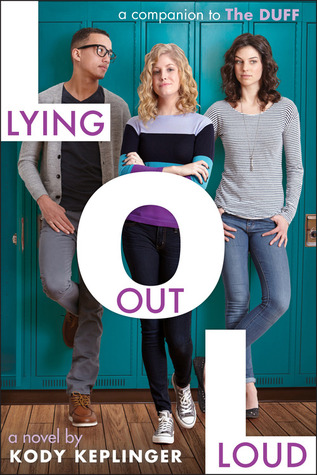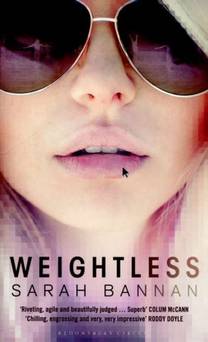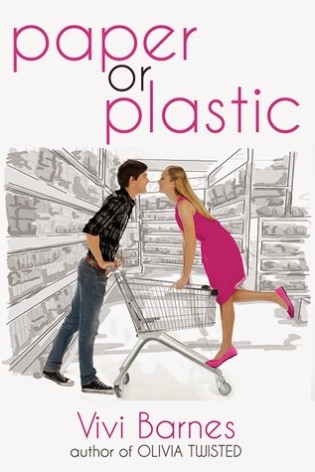Tag Archives: realistic
The Little Paris Bookshop
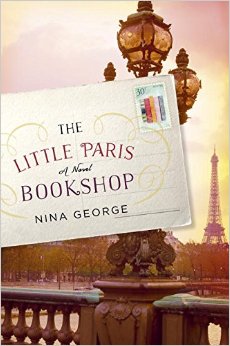 The Little Paris Bookshop
The Little Paris Bookshop
Crown Pub
June 23, 2015
Hardcover
400

“There are books that are suitable for a million people, others for only a hundred. There are even remedies—I mean books—that were written for one person only…A book is both medic and medicine at once. It makes a diagnosis as well as offering therapy. Putting the right novels to the appropriate ailments: that’s how I sell books.”
Monsieur Perdu calls himself a literary apothecary. From his floating bookstore in a barge on the Seine, he prescribes novels for the hardships of life. Using his intuitive feel for the exact book a reader needs, Perdu mends broken hearts and souls. The only person he can't seem to heal through literature is himself; he's still haunted by heartbreak after his great love disappeared. She left him with only a letter, which he has never opened.
After Perdu is finally tempted to read the letter, he hauls anchor and departs on a mission to the south of France, hoping to make peace with his loss and discover the end of the story. Joined by a bestselling but blocked author and a lovelorn Italian chef, Perdu travels along the country’s rivers, dispensing his wisdom and his books, showing that the literary world can take the human soul on a journey to heal itself.
Review:
A true romance about the love between people and books, “The Little Paris Bookshop” will delight anyone looking for a “literary” read.
The idea that not every book is meant for all readers, or even for a large audience, is true of this novel. If you’re looking for a fast-paced plot, this is not the book for you. To enjoy it you need to be willing to meander and to take the time to allow yourself to slowly sink into the world of Monsieur Perdu and friends. It’s a slice-of-life read with beautiful imagery and lyrical writing. Meant to be savored, do not be afraid to put it down and come back later. Some things are meant to be savored. “The Little Paris Bookshop” is not for everyone, but for those who enjoy the types of novels I’ve described, it is one of the best out there. It reminds me of “The Whistling Season” by Ivan Doig, which is an extremely high compliment.
All of the characters are wonderfully quirky and full of depth. Each has a backstory that is revealed in layers through both observations and dialogue. And the dialogue is excellent! Sometimes humorous, sometimes heartbreaking, there are no wasted words. It all furthers what you know about their past in addition to giving hints to their future. I want to be friends with them and would love for “The Literary Apothecary” to be an actual place I could visit.
There is one flaw that so many good books often have: the excessive epilogue. While I enjoyed how their lives turn out, the book had a natural ending in the last chapter. A small epilogue would have been nice, but there was so much crammed in that it would have been better served, if the author felt it necessary, to have been split into a couple of actual chapters.
“The Little Paris Bookshop” is not for everyone, but for those who enjoy the types of novels I’ve described, it is one of the best out there. It’s a balm for the soul, to paraphrase Monsieur Perdu.
This review is based on a complimentary copy provided by the publisher in exchange for an honest review.
Content Warning:
As this is an adult novel, there are no content warnings.
Kissing Ted Callahan (and Other Guys)
Juvenile Fiction
Poppy
2015-04-14
320

Nick and Norah's Infinite Playlist meets Easy A in this hilariously realistic story of sneaking out, making out, and playing in a band. After catching their bandmates in a compromising position, sixteen-year-old Los Angelenos Riley and Reid become painfully aware of the romance missing from their own lives. And so a pact is formed: they'll both try to make something happen with their respective crushes and document the experiences in a shared notebook. While Reid struggles with the moral dilemma of adopting a dog to win over someone's heart, Riley tries to make progress with Ted Callahan, who she's been obsessed with forever-His floppy hair! His undeniable intelligence! But suddenly cute guys are popping up everywhere. How did she never notice them before?! With their love lives going from 0 to 60 in the blink of an eye, Riley and Reid realize the results of their pact may be more than they bargained for.
Review:
“Kissing Ted Callahan (and Other Guys)” is exactly what it intends to be and nothing more: a lighthearted romance.
The plot is very cute, though predictable, and is told through the very amusing voice of Riley. The other characters are pretty much relegated to romance novel tropes, but in this case that isn’t a bad thing. The teenagers act in a realistic manner, speak in a realistic manner, and think in the same realistic manner. In other words, in case you didn’t catch on, even though it’s predictable it is realistic, and I always respect authors who aren’t afraid to show how it really is.
I recommend “Kissing Ted Callahan (and Other Guys)” for anyone high-school age and above who is looking for a quick, easy read that also makes you laugh.
This review is based upon a complimentary copy provided by the publisher in exchange for an honest review.
Content Warning:
Language, Sexual Situations, Underage Drinking
The Duff
Juvenile Fiction
Poppy
2011-06-07
280

Seventeen-year-old Bianca Piper starts sleeping with Wesley Rush, a notorious womanizer who disgusts her, in order to distract her from her personal problems, and to her surprise, the two of them find they have a lot in common and are able to help each other find more productive ways to deal with their difficulties.
Review:
When I began reading “The Duff”, I thought I would find a somewhat typical teen romance. I was pleasantly surprised to find that was not the case at all.
Bianca and her two best friends are inseparable, and on one of their nights out Bianca is told by the school’s resident that she is “The Duff” of her group of friends. Duff means “Designated ugly fat friend”, and along with some other major issues occurring in her life, the term completely ruins her self-esteem. The internal feelings are something most of us can relate to, both male and female. Bianca’s internal dialogue is witty and self-deprecating, revealing to the reader the things she cannot see for herself.
What really hooked me is the ultimate conclusion to her cycle of self-hatred. While I cannot elaborate without spoiling the story, I can say that it is something that every single person needs to hear, young and old, male and female. The overall message is one of empowerment and awareness. I am not ashamed to admit that part of it made me cry from the memories of my own time in high school.
I wholeheartedly recommend “The Duff” to all older high school readers. While the message is good for everyone, the content is explicit (and very realistic), making it a book best saved for when middle readers get a little older.
This review is based upon a complimentary copy provided by the publisher in exchange for an honest review.
Content Warning:
Explicit Sexual Content, Language, Minor Violence, Alcohol Abuse
Pioneer Girl
Fiction
Penguin Books
2015-01-27
304

Discovering a family heirloom that her mother may have received from Laura Ingalls Wilder, PhD graduate Lee Lien explores the tenuous connection between her ancestors and the famous pioneer author only to discover a trail of clues that lead to fateful encounters.
Review:
“Pioneer Girl” is an absolutely wonderful novel about a Vietnamese woman born to immigrant parents in the 1970s.
As a child, Lee Lien was obsessed with the Little House on the Prairie books as she and her family moved from place to place, looking for a better life. As an adult, she begins to trail a story that goes back to her mother’s childhood in Saigon. The search for the full story makes for a wonderful literary mystery that would be enough to make a good read on its own. However, there is much more.
Soon Lee, and the reader, begins to connect the lives of her family with those of the Wilders. The search for a better life is something that spans all cultures and generations, and never has book so captured the American Dream as eloquently as “Pioneer Girl”. It is something unchanging, and will hopefully be embraced and extended to all of those yet to come. Don’t we all want what is best for those we love?
I learned more about Vietnamese culture than all of what I knew previously combined. It was extremely educational, and I don’t think I will ever be able to eat at a Chinese Buffet again. More diverse books are desperately needed, and this is an excellent addition toward that goal of universal diversity. Thank you to the author for your work.
I recommend “Pioneer Girl”. While it is an adult book, the subject matter can be appreciated by upper middle graders and up. It will be extra enjoyable to all “Little House on the Prairie” fans.
This review is based upon a complimentary copy provided by the publisher in exchange for an honest review.
Painless
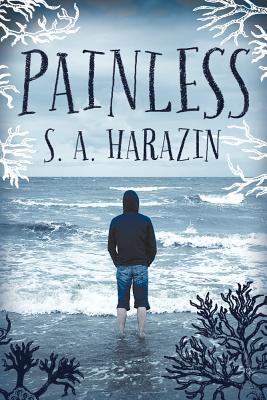 Painless
Painless
Albert Whitman Teen
March 1, 2015
Hardcover
272

A first kiss. Falling in love. Going to prom. These are all normal things that most teenagers experience. Except for 17-year-old David Hart. His life is anything but normal and more difficult than most. Because of the disease that wracks his body, David is unable to feel pain. He has congenital insensitivity to pain with anhydrosis--or CIPA for short. One of only a handful of people in the world who suffer from CIPA, David can't do the things every teenager does. He might accidentally break a limb and not know it. If he stands too close to a campfire, he could burn his skin and never feel it. He can't tell if he has a fever and his temperature is rising. Abandoned by his parents, David now lives with his elderly grandmother who is dying. When David's legal guardian tells him that he needs to move into an assisted living facility as he cannot live alone, David is determined to prove him wrong. He creates a bucket list, meets a girl with her own wish list, and then sets out to find his parents. All David wants to do is grow old, beat the odds, find love, travel the world, and see something spectacular. And he still wants to find his parents. While he still can.
Review:
“Painless” is a book about a boy, David, who suffers from a life-threatening disease called CIPA that makes it impossible for him to feel pain or changes in temperature.
The world of David is a fascinating one, with inner thoughts and situations that are not what most of us have ever been exposed to. Additionally, there is a wealth of information about CIPA and what life is like for those living with it. The plot is excellent in that it shows how David learns to come out of his shell and begin dealing with the world around him, facing his fears head-on, along with learning there are people there to help him and how to accept that help.
Unfortunately, there is almost zero resolution to the mysteries in the plot. While realistically all of life’s problems are rarely solved easily, it would have been nice for there to be some sort of closure for the reader to at least one of the threads. It made what was a good read a source of frustration, and that is what is lingering in my head as I write this review.
I cannot recommend “Painless”, nor can I say not to read it. It will depend upon the reader whether or not it is appealing.
This review is based upon a complimentary copy provided by the publisher in exchange for an honest review.
Content Warning:
Brief Discussions of Sexual Situations, Language, Violence
Silence
Fiction
Shadow Mountain
2015-03-03
320

Love is blind, but it's also deaf. Stella was born to sing. Someday Broadway. Even though she's only a sophomore at a new high school, her voice has given her the status as a "cool kid." But everything changes when a tragic accident renders her deaf. She can't hear herself sing not to mention speak. She can't hear anything. Silence. What happens when everything you've dreamed of and hoped for is shattered in a single moment? Enter Hayden, the boy with blond curls who stutters. He's treated like an outcast because he's not "normal." And, yet, Stella feels an attraction to him that she can't explain. As Hayden reaches out to help Stella discover a world without sound, his own tragic past warns him to keep a distance. But their connection is undeniable. Can the boy who stutters and the girl who's deaf ever find a happily-ever-after? Silence is a story of friendship and hope with a lesson that sometimes it takes a tragedy to help us find and appreciate beauty and love.
Review:
“Silence” is a romance for teens about a boy who has a speech impediment and a girl who loses her hearing in a freak accident. At its heart it’s a very sweet story, and I wish I could have given it four stars.
I’ll begin with the good. It’s nice to see a book written featuring different sorts of disabilities and how they affect lives of both those with them and those around them. There are no sexual acts outside of kissing, faith is featured heavily, and there is no bad language. It’s written in a very simple-to-read manner which makes it a good choice for middle readers and those looking for “clean” romances, which I know are often difficult to find.
Unfortunately, the writing, while easy to read, is also over-the-top flowery. Considering there are two narrators, and both speak in flowery language, it is difficult to distinguish between their voices. Therefore, character development is stagnant. The plot is not bad, but seems more suited to a short story, making it seem like quite a bit is filler.
I recommend “Silence” for those looking for a “clean” romance for younger middle graders, but don’t think it would appeal to other demographics. Your mileage may vary.
This review is based upon a complimentary copy provided by the publisher in exchange for an honest review.
Content Warning:
Child Abuse
My Best Everything
Juvenile Fiction
Little, Brown Books for Young Readers
2015-03-03
400

An Appalachian summer walks the line between toxic and intoxicating in this debut novel about first loves, broken hearts, and moonshine. Luisa "Lulu" Mendez has just finished her final year of high school in a small Virginia town, determined to move on and leave her job at the local junkyard behind. So when her father loses her college tuition money, Lulu needs a new ticket out. Desperate for funds, she cooks up the (illegal) plan to make and sell moonshine with her friends. Quickly realizing they're out of their depth, they turn to Mason, a local boy who's always seemed like a dead end. As Mason guides Lulu through the secret world of moonshine, it looks like her plan might actually work. But can she leave town before she loses everything? My Best Everything is Lulu's letter to Mason--but it a love letter, an apology, or a good-bye?
Review:
It is going to be really difficult to describe just how much I love “My Best Everything” and what makes it amazing, but I am going to give it a try.
At its heart it is a coming of age story and a romance, and one that uses some of the standard tropes, but somehow manages to turn them around and make them into something completely different. You have the bad boy, a common staple of romances, but he is not at all typical and by chapter ten you know his story is not what you think it will be. There is bullying and stereotypes, but they are not the ones usually addressed in books, and it makes the reader think beyond what they would normally define as “bullying”.
The novel is written in the first person, but as a letter to the male protagonist, making the word “you” draw the reader into the experience. It makes the entire thing more personal and intimate, with the narrator expressing feelings in a direct fashion, skipping flowery language, exposing the very real problems with the relationship, and yet somehow making this the type of love story you are glad you were given the chance to become a part of. There’s also the mystery of exactly why the letter is being written in the first place, adding some suspense, as well as reader anxiety, to the reading.
The character development is some of the best I have ever read in this novel’s genre, with traits and backstories being revealed with perfect timing. All of the characters are flawed, with qualities that make you want to hug them and qualities that make you want to shake some sense into them. In other words, they are realistic and react to their circumstances in a manner consistent with their personalities. Additionally, the environment of the Blue Ridge Mountains is written in a way that makes them their own character. Beautiful and flawed, they evoke feelings of longing and frustration.
I want to make note that the main character, Lulu, is Latino, and that is refreshing. It is so rare to find diversity in books without it being the central theme of the book that it was a wonderful surprise to have her race being something that just is part of her and not the driving plot of the story.
The characters in “My Best Everything” act realistically, so there is underage drinking, sexual situations, and quite a bit of colorful language. There is also a relationship with an age difference that may bother some, though the girl is only a couple of months shy of eighteen, so keep that in mind if that is the sort of thing that will decrease your enjoyment of the book. Also, it’s about making moonshine, so if alcohol bothers you in any way, this is most definitely not the book for you.
As for my opinion, I highly recommend “My Best Everything” for older young adults as well as those who are no longer young. It’s wonderful and I did not want to leave the characters and world behind. I will never stop hoping that Sarah Tomp revisits Lulu and Mason at sometime in the future.
This review is based upon a complimentary copy provided by the publisher in exchange for an honest review.
Content Warning:
Sexual Content, Language, Violence, Addiction, Underage Drinking, Lots of ‘Shine
